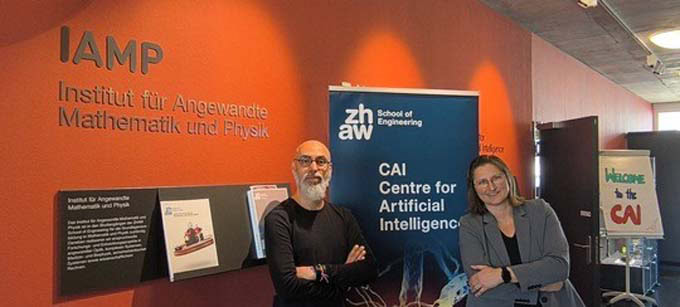These were the ten biggest drags on SME employees in 2022
Bureaucracy, monotony, and poor communication: These keywords can be used to summarize the ten hurdles that have proven to be the biggest drags on Swiss SMEs in 2022, according to a survey by SAP Concur. More efficient digital processes would contribute to employee satisfaction.

Over the past three years, the pandemic shift to the home office has taken its toll on Swiss companies. The surge in digitization predicted by experts in this context is very evident in this country: according to a Study of the University of Zurich Before the COVID 19 pandemic, just under 20 % of employees worked from home; during the pandemic, this figure was over 60 %. In many places, hybrid working models were introduced that required a more modern IT infrastructure. For many mid-sized companies in particular, the digitization of business processes became an ad hoc project during this period. The slow reopening of the world in 2022 brought with it a whole new set of challenges. What has happened since then? What impetus did the COVID 19 pandemic provide for the world of work today? Which innovations have been further put on the back burner by supply bottlenecks and price increases?
The ten biggest brake blocks
The results of the 2022 SME study by SAP Concur, a software company that provides travel and expense management services for companies, confirm the digitization push in Switzerland in terms of technical equipment, but there is still some catching up to do when it comes to the digitization of business processes. The question of how employees in SMEs can best communicate with each other is becoming particularly important. It has not yet been answered digitally.
Against this background, the top 10 hurdles for Swiss SMEs in their day-to-day work are as follows:
| 1. | Poor coordination with colleagues: 25 % | |
| 2. | Bureaucratic processes and procedures: 24 % | |
| 3. | Recurring administrative tasks with no value added: 23 % | |
| 4. | Lengthy approval processes (paper, signature): 18 % | |
| 5. | Too many internal meetings: 15 % | |
| 6. | Poor IT support, especially in home office: 15 % | |
| 7. | Obsolete IT hardware: 15 % | |
| 8. | Obsolete IT software: 13 % | |
| 9. | Approve and account for home office expenses: 8 % | |
| 10. | Business travel approval and accounting: 7 % |
For the respondents in 2022, the most potential for frustration was poor coordination with colleagues (25 %). One reason for this is the choice of communication tools: even if digital collaboration tools support communication, personal contact on site cannot always be digitized in daily coordination. For example, 47 % of respondents say that digitization and virtual meetings can maintain business relationships remotely, but they do not replace business trips and the associated face-to-face exchanges. More than half of the respondents (55 %) have become aware of the importance of face-to-face contact with customers as well as colleagues as a result of the COVID 19 pandemic and the large number of virtual meetings. At the same time, 34 % of mid-market employees still say they travel less than they did before the COVID-19 pandemic. Although many employees were not yet traveling at pre-pandemic levels in 2022, approving and accounting for business travel was still a hurdle for 7 %. Especially in light of air travel chaos, wars and continued pandemic rules, just over a third of respondents (38 %) would like their employer to provide apps that make business travel easier.
The best of both worlds
Compared with the rest of the DACH region, Switzerland is clearly ahead in terms of digital equipment in the workplace. In this country, only 15 % of respondents felt thwarted by outdated IT hardware (Germany: 23 %; Austria: 21 %). Only 13 % cited outdated IT software as a hurdle in their day-to-day work (Germany: 19 %; Austria: 18 %). Nevertheless, too many processes in SMEs are still characterized by bureaucracy (24 %) and recurring administrative procedures with no added value (23 %). 38 %, for example, still have to submit invoices on paper and fill out Excel spreadsheets. The billing processes take a correspondingly long time: almost one-third of respondents (29 %) have to wait two to four weeks for reimbursement. According to the survey, there is still a clear need for optimization in Swiss SMEs when it comes to digital solutions for expense management. While 40 % of employers in Austria already use digital solutions to settle employee expenses such as home office costs, expenses or mileage allowances, according to the respondents, this is the case in just under a quarter of Swiss companies (26 %; Germany: 28 %).
"Efficient, digitized processes in the workplace increase employee satisfaction. SMEs should not underestimate this positive influence. The study results clearly show that too much bureaucracy and paperwork in the daily work routine lead to frustration and loss of productivity," says Dennis Torchetti, Head of Switzerland & CEE at SAP Concur. "This makes it all the more important to focus now on IT solutions that reduce monotonous, time-consuming work processes and create space for value-creating activities. Those who continue to put off digital transformation will lose employees and innovation in the long term."
Source and further information: SAP Concur









